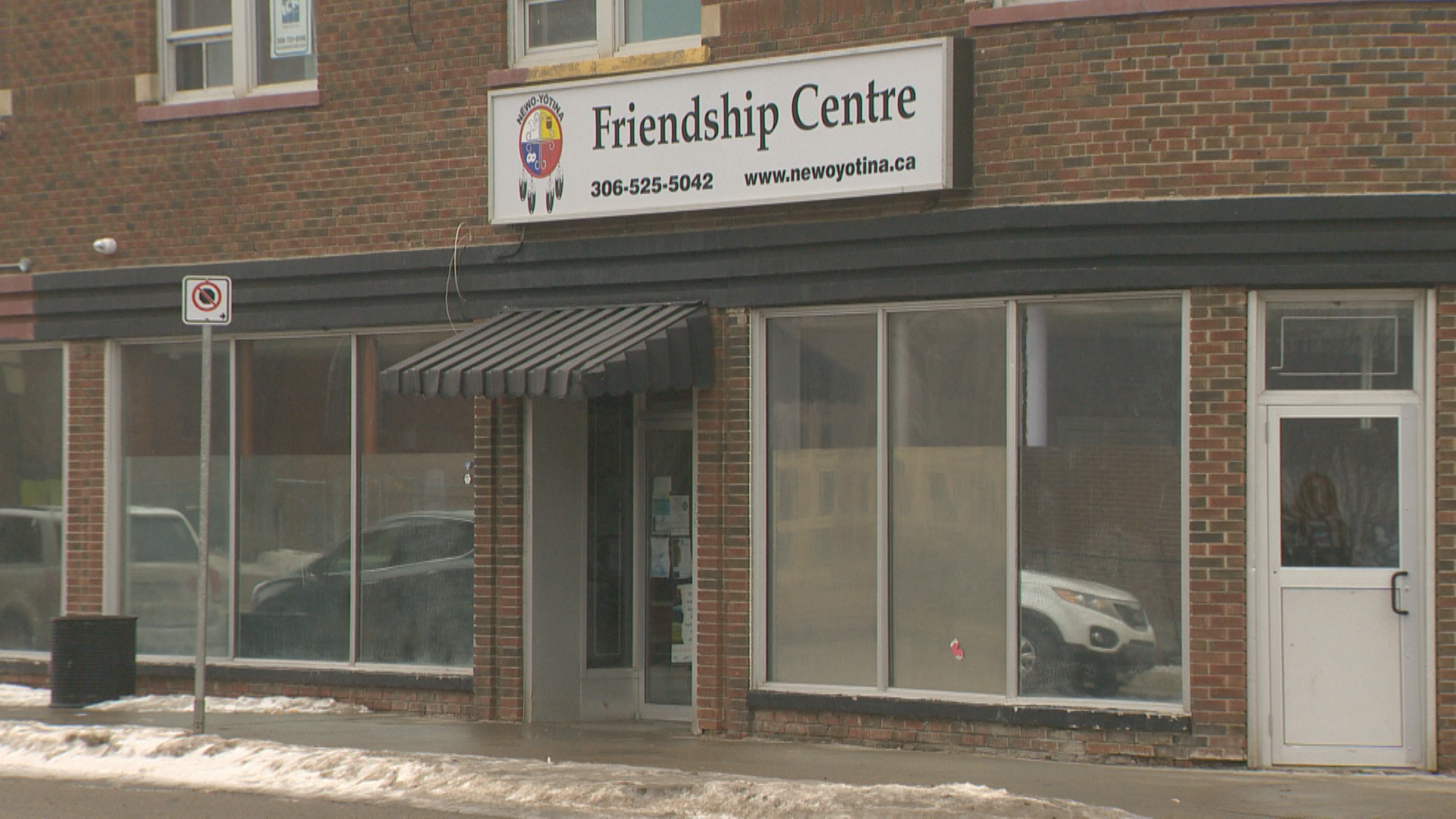A Regina friendship centre has been given preliminary approval by the Saskatchewan government to open an overdose prevention site.

Nēwo Yōtina Friendship Centre’s executive director, Michael Parker, said that the group received the approval earlier this week and he hopes the site will be up and running in two weeks.
“There’s still some final vetting that needs to go through in terms of the policy and procedures,” Parker said.
The Saskatchewan Ministry of Health confirmed final approval for the site is “pending receipt of policies and procedures.”
The ministry added that the approval is pursuant to an Urgent Public Health Need Site exemption issued by Health Canada.
“The exemption brings oversight and structure to the operation of overdose prevention sites and ensures volunteers and staff are protected from criminal liability,” the ministry wrote in an email to Global News.
The centre applied for provincial government approval in December 2020.
According to the Saskatchewan Coroner’s Service, there were 233 confirmed drug toxicity deaths and 112 suspected in 2020. In 2021, there have been 10 confirmed drug toxicity deaths and 65 suspected.
The Ministry of Health said the government is concerned about the increase in drug overdoses and deaths in Saskatchewan.
“Enhancing harm reduction services is an important step in increasing access to services that save lives and prevent disease transmission,” the ministry said.
Parker added the group is well-positioned to open the site with staff who can provide other services to people who use the site.

Get weekly health news
“We also have all of our existing services that very much complement the overdose prevention site with our housing support workers and we have mental health support workers so that we’re not just providing the overdose prevention,” Parker said.
The site will operate out of the Friendship Centre building, located at 1635 11th Ave. With social distancing in place, the room can accommodate two people at a time. Without social distancing, the room has space for three individuals.
The room will have a separate entrance off the sidewalk and will be staffed by two support workers. People using the service will be assessed to determine if they are eligible to use the room. Parker explained the site cannot serve minors or people using drugs for the first time.
“The purpose is not to encourage use, that’s not the point of it, it’s about safety and trying to reduce the harm and potential risk so people can at some point access the services that they need,” Parker said.
Staff will have naloxone kits on-site in the event of an overdose. Currently, the centre has the funding and capacity to open the site from 9 a.m. until 4 p.m. Monday to Friday.
The group will be using their own funding to operate the site, however, Parker said they are looking to the public and government to provide financial support.
Ideally, they’d like to keep the site open longer, but Parker explained it is not feasible at this time.
When applying to the provincial government, the centre had letters of support from Mayor Sandra Masters and Regina police Chief Evan Bray, which Parker said means a lot.
Parker said the site is successful if it prevents overdoses and ultimately saves lives.
“Longer term, it means those folks whose lives have been saved are able to access the services they need. You can’t go to rehab if you’re dead,” Parker said.
In addition to naloxone kits, the site will have sterile needles, oxygen and an AED machine on-site.
Parker added overdose consumption sites are not intended to be a permanent structure and said the group will continue to have a dialogue with stakeholders about what needs to happen beyond this measure.
The Ministry of Health explained that overdose prevention sites are set up to deal with urgent public health needs. Clients can use their own illicit drugs, access sterile harm reduction equipment and receive emergency overdose treatment as needed at the site.
Overdose prevention sites are different from safe consumption sites “in that they do not require the detailed application and consultation process to obtain a Health Canada exemption.”
Overdose preventions sites are typically set up by volunteers, peer workers or front-line staff who are usually not health-care workers, the ministry said. They added that overdose prevention sites don’t offer the range of other support services that safe consumption sites do such as referrals to treatment programs.
–With files from Roberta Bell








Comments
Want to discuss? Please read our Commenting Policy first.